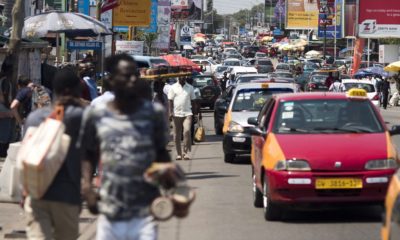- Buhari Warns ECOWAS Against Hasty Single Currency Implementation
President Muhammadu Buhari has warned member countries of the Economic Community of West African States against hasty implementation of the single currency programme being planned for the sub-region by 2020.
He issued the warning on Tuesday during the fifth meeting of the Presidential Task Force on the ECOWAS Currency Programme in Accra, Ghana
Buhari was represented by the Governor, Central Bank of Nigeria, Mr. Godwin Emefiele, according to a statement by the bank.
He noted that the Heads of Government had not properly articulated and analysed a comprehensive picture of the state of preparedness of individual countries for monetary integration by 2020.
The President warned that the non-preparedness of some member countries, the attempt to water down criteria and the continued disparities between macroeconomic conditions in ECOWAS countries were major challenges to the implementation of the monetary convergence programme.
He said while all these had continued to be major issues of concern, there was a need for members to evaluate the challenges in view of the current economic realities.
Buhari observed that ECOWAS Heads of Government had not been adequately briefed on the full implications of forcing through the integration by 2020, particularly as some countries were not individually ready domestically.
While pointing out that there were still outstanding issues in the road map to an integrated currency union, the President noted that the macroeconomic fundamentals of many countries in ECOWAS were diverse and uncertain.
He also noted that the inflation targeting regime recommended as a framework was not feasible as it was based on the adoption of a flexible exchange rate policy.
Buhari also noted that real convergence of macroeconomic variables were far from being achieved despite efforts made so far.
The President, therefore, called for a push towards ratification and domestication of legal instruments and related protocols.
He added that there was a need for the harmonisation of all fiscal, trade and monetary policies as well as statistical systems, so as to limit the extent of current policy divergences.
He also advised the West African Economic and Monetary Union countries to make a presentation on a clear road map towards delinking from the French Treasury.
Buhari, according to the statement, also called for the establishment of an ombudsman with powers to invoke sanctions when member countries were in breach of agreed standards, protocols and convergence criteria.

 News3 weeks ago
News3 weeks ago
 Business3 weeks ago
Business3 weeks ago
 Technology3 weeks ago
Technology3 weeks ago
 Investment3 weeks ago
Investment3 weeks ago
 Banking Sector3 weeks ago
Banking Sector3 weeks ago
 Banking Sector3 weeks ago
Banking Sector3 weeks ago
 Appointments3 weeks ago
Appointments3 weeks ago
 Investment3 weeks ago
Investment3 weeks ago





























